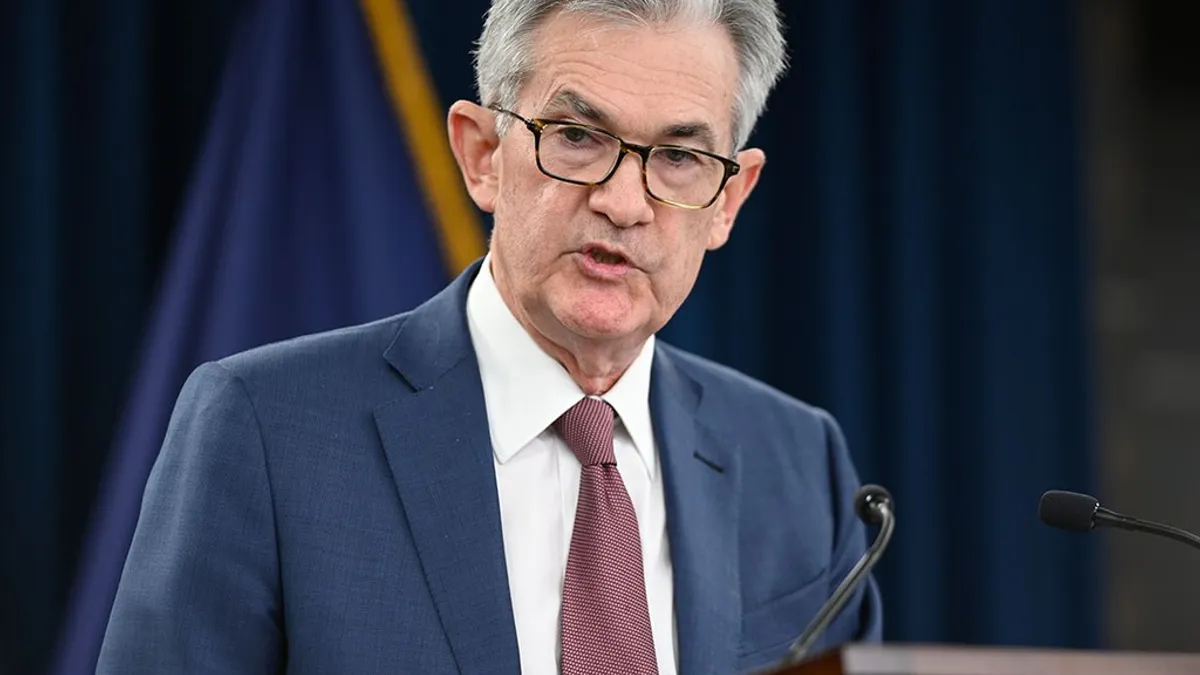A chunk of payments companies this week announced they’re bringing on new chief financial officers, as U.S. businesses face macroeconomic headwinds like inflationary pressures and rising interest rates.
PayPal, Fidelity National Information Services (FIS), MoneyGram and Shift4 all said this week they are bringing on new chief financial officers. Some of the companies have cited challenges of the economic environment in reporting their second-quarter results recently.
Jacksonville, Florida-based FIS said Thursday that CFO James “Woody” Woodall is retiring and will be succeeded by Deputy CFO Erik Hoag in November. That company lowered its earnings forecast for 2022, saying macroeconomic issues were a factor.
PayPal announced Tuesday it had hired Blake Jorgensen, who succeeds interim CFO Gabrielle Rabinovitch. She took the helm earlier this year after John Rainey left the post at the company to take the same role at retail giant Walmart.
“In times where macro headwinds present themselves, we often go after grinders,” said Josh Crist, co-managing partner at executive search firm Crist Kolder Associates, referencing executives with a proven track record. It was his firm that placed Rainey at PayPal back in 2015.
San Jose, California-based PayPal has fallen short this year of previous growth goals.
Jorgensen “recognizes the enormity of the situation” at PayPal, Crist said, noting Jorgensen was with Electronic Arts through “some very turbulent times.”
Having served as CFO and chief operating officer, that “mix of finance and operating experience within a difficult environment is going to give Blake a leg up,” Crist added.
Shift4 announced Nancy Disman will become the fintech’s new chief financial officer on Friday, replacing Brad Herring. Disman currently serves on the Allentown, Pennsylvania-based company’s board of directors, but will resign from that post Friday.
Herring, who has been Shift4’s CFO since 2019, is “pursuing other opportunities,” CEO Jared Isaacman said during Thursday’s second-quarter earnings webcast.
Disman has held the CFO role for technology consulting firm Intrado for the past five years, per a news release. Prior to that, she held the CFO title for the merchant services division of the payments company TSYS, which was acquired by Global Payments in 2019.
Crist pointed to Disman, another former client of Crist Kolder, as an example of the type of CFO companies are seeking to navigate these choppier waters. “She’s going to move the needle for that company, no doubt,” Crist said. “That’s the kind of profile that’s needed when these macro headwinds do present themselves, even in a growth space like the payments space.”
During tougher economic times, CFOs not only look at costs, but also the sophistication of data and analytics, to ensure companies are using the correct key performance indicators to adjust and grow despite circumstances.
Seasoned CFOs who understand how to monitor and track performance can be “very important at a time that’s questionable,” Crist said.
Dallas-based MoneyGram on Thursday said Brian Johnson, the company’s head of corporate finance and its global treasurer, will become its new CFO as of Sept. 1. He will take the helm from Larry Angelilli, who will become MoneyGram’s executive vice chairman.
The money transfer company is not only facing financial challenges, but also is adapting to a planned $1 billion acquisition by a private equity firm and fighting a federal probe launched this year.
Crist expects more CFO turnover to come, but that could change. “There’s a ton of demand throughout industries, and a major lack of supply,” he said. “If companies realize that, which many have, there may not be as much turnover as I think there’s going to be.”
For instance, PayPal agreed to give Jorgensen a $6 million “new hire cash bonus,” according to a company regulatory filing this week spelling out his compensation.
When demand outpaces supply, there is sometimes resistance to paying more for those top financial officers. “You kind of stick with the devil you know, to get through that tough time,” Crist said. That might lead some companies to put their search on hold for six to 12 months, he added.
“Everybody’s offering cash right now, and that’s what you need to get people in the door,” Crist said. Continued churn is likely at large public companies who have the cash to do that, compared to mid-cap and small-cap companies that can’t, he noted.























